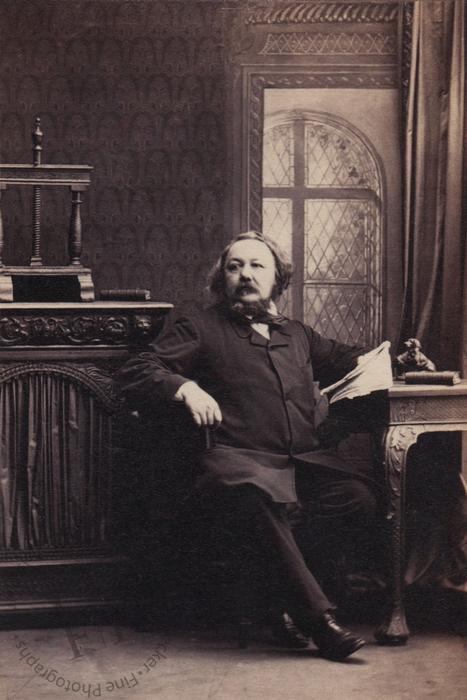Ferdinand Freiligrath
(1810-1876)
4 June 1862
Volume 7, page 58, sitting number 8477.
A carte-de-visite portrait of the German poet, translator and liberal agitator Ferdinand Freiligrath.
Born at Detmold in Germany, he had to leave secondary school at an early age and trained as a salesman. He worked in Amsterdam from 1823-1836, and in 1837 he started working as a bookkeeper in Barmen, Germany. His first collection of poems, Gedichte, was published in 1838 and the following year he became a professional writer. His early poems, inspired by Victor Hugo's Orientales (which he also partly translated into German), often dealt with exotic subjects. For example, the poem 'Der Mohrenfürst' tells the story of a black warrior-king who is abducted by slave traders and finally ends up in a circus in Europe. Even though at the time Freiligrath was not political, the poem is clearly anti-colonialist.
As a reaction to the political climate of repression and censorship Freiligrath soon became more political. Ein Glaubensbekenntnis was published in 1844 and was a huge success. Freiligrath had to leave Germany and was contacted by Karl Marx in Belgium. In 1844 he moved to Switzerland and in 1845 Ça ira! was published. After some time in London Freiligrath returned to Germany and worked for the Neue Rheinische Zeitung of which Karl Marx was the general editor. In 1851 he had to leave Germany again and became the director of the London branch of the Schweizer Generalbank. Back in Germany once again, Freiligrath finally became a nationalist, even publishing a patriotic poem ('Hurra, Germania!') inspired by Germany's annexation of Alsace-Lorraine.
Ferdinand Freiligrath died on 18 March 1876.

